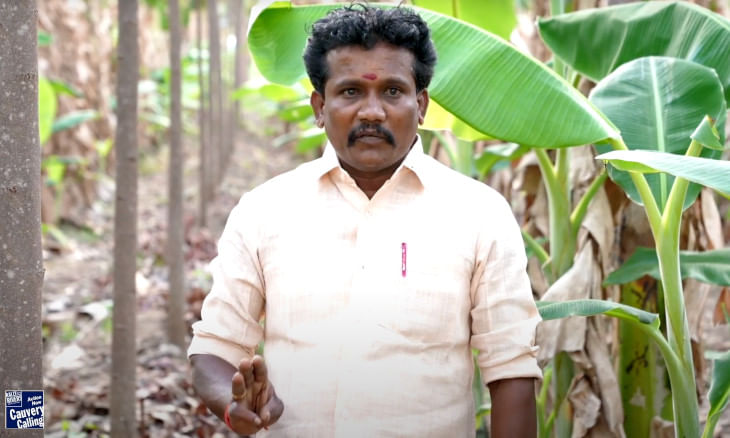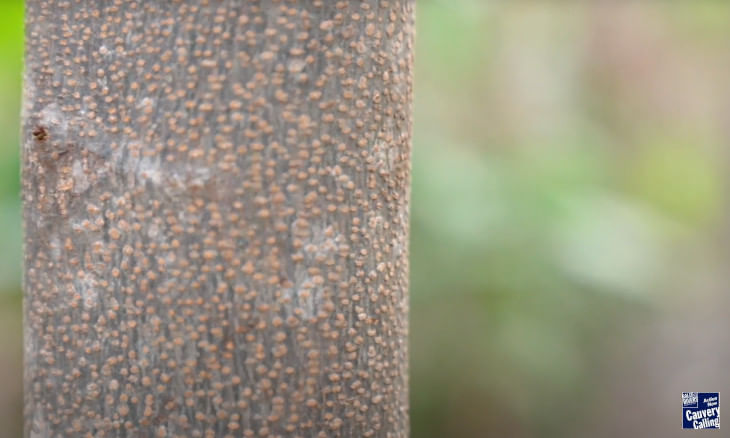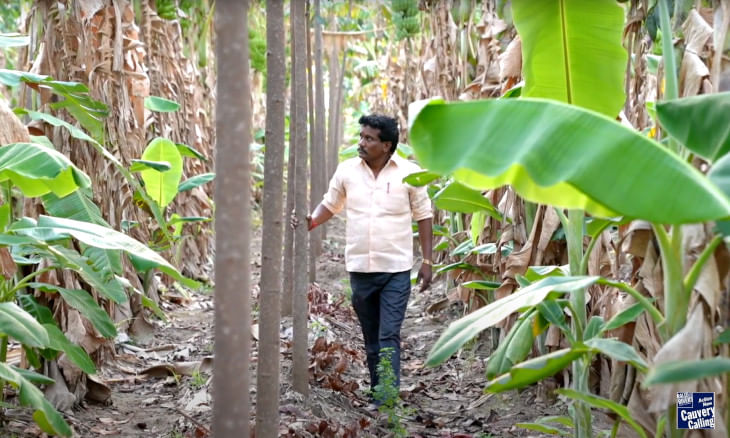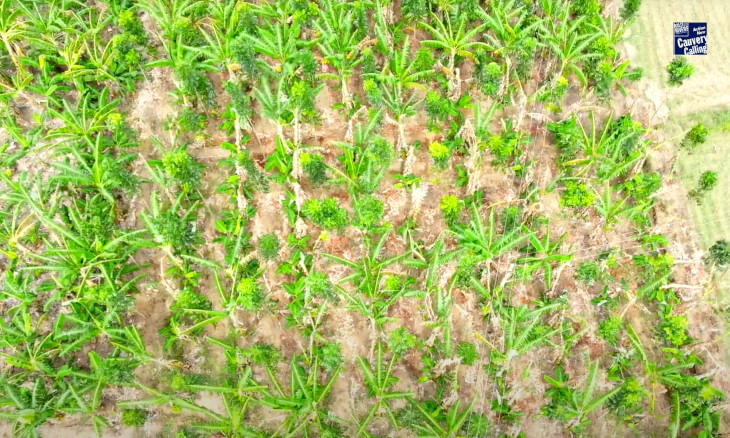>
Cauvery Calling>
Blogs>
Human Impact Stories>
Sowing Success: Velankanni's Sustainable Harvest with Mahogany
Share
Sowing Success: Velankanni's Sustainable Harvest with Mahogany
Human Impact Stories
27 Dec 2023
02:36 pm
Discover how Velankanni's embrace of sustainable farming in Kuttathapatti Village with mahogany intercropping has turned his agriculture legacy into a scalable, eco-friendly success story.

Velankanni, a farmer from Kuttathapatti Village in Dindigul District, Attur Taluk, has a rich heritage in agriculture, following in the footsteps of his ancestors. After completing his schooling up to the 10th standard, he fully committed himself to farming, initially focusing on paddy and banana cultivation on his 10-acre land. Faced with fluctuating yields and profits, Velankanni sought a more sustainable approach to farming.
Guidance came through the initiative “Cauvery Calling,” which offered Velankanni a novel farming method. After testing the soil and water on his farm, experts from Cauvery Calling advised Velankanni on planting mahogany trees, providing saplings at just Rs. 3 each. Embracing this new direction, Velankanni planted 400 mahogany saplings, interspersed with 900 banana trees, in a well-planned intercropping system on his farm.
This innovative approach bore fruit in just two years. The mahogany trees, requiring little maintenance and no additional watering, drew their needs from the banana plantation. Remarkably, the shaded environment created by the mahogany trees naturally reduced the presence of weeds, making his farm more manageable and sustainable.
Velankanni's farm has become a model of sustainable agriculture. The mahogany trees have grown impressively, thriving without the need for chemical fertilizers or manure. The banana trees, flourishing in the shade, contribute to the health of the mahogany, creating a harmonious and efficient ecosystem.
Looking to the future, Velankanni is optimistic about the financial prospects of his mahogany plantation. Spread across 2.5 acres with 900 trees, he anticipates a significant financial return after 15 years, even with a conservative estimate of Rs. 5,000 per tree. This venture represents not just a financial gain but a triumph in organic farming, contributing positively to environmental preservation and soil health, ensuring a better future for coming generations.
Related Stories
Resilience Beyond Reason: On the Farmers’ Trail of Cauvery Calling
18 Aug 2019
11:02 am
Read the stories of Subramanyam and Sabarinatham and see how underneath their inspiring spirits, there is a call for help.
What Happens When A Farmer Becomes Poetic! On the Farmers' Trail of Cauvery Calling
19 Aug 2019
10:38 am
Here’s the interesting message that farmer Vanambadi wants to share with all the farmers of Tamil Nadu. You don’t want to miss his poetic flair!
Cauvery Calling... And Look Who Heard! - On the Farmers’ Trail of Cauvery Calling
20 Aug 2019
02:51 pm
#Cauvery is Calling, and look who heard! Read about an unusual encounter of our millennial Gen Z volunteers in village Madagondanahalli.
Keep In Touch
Get the latest Cauvery Calling updates delivered to your inbox.



